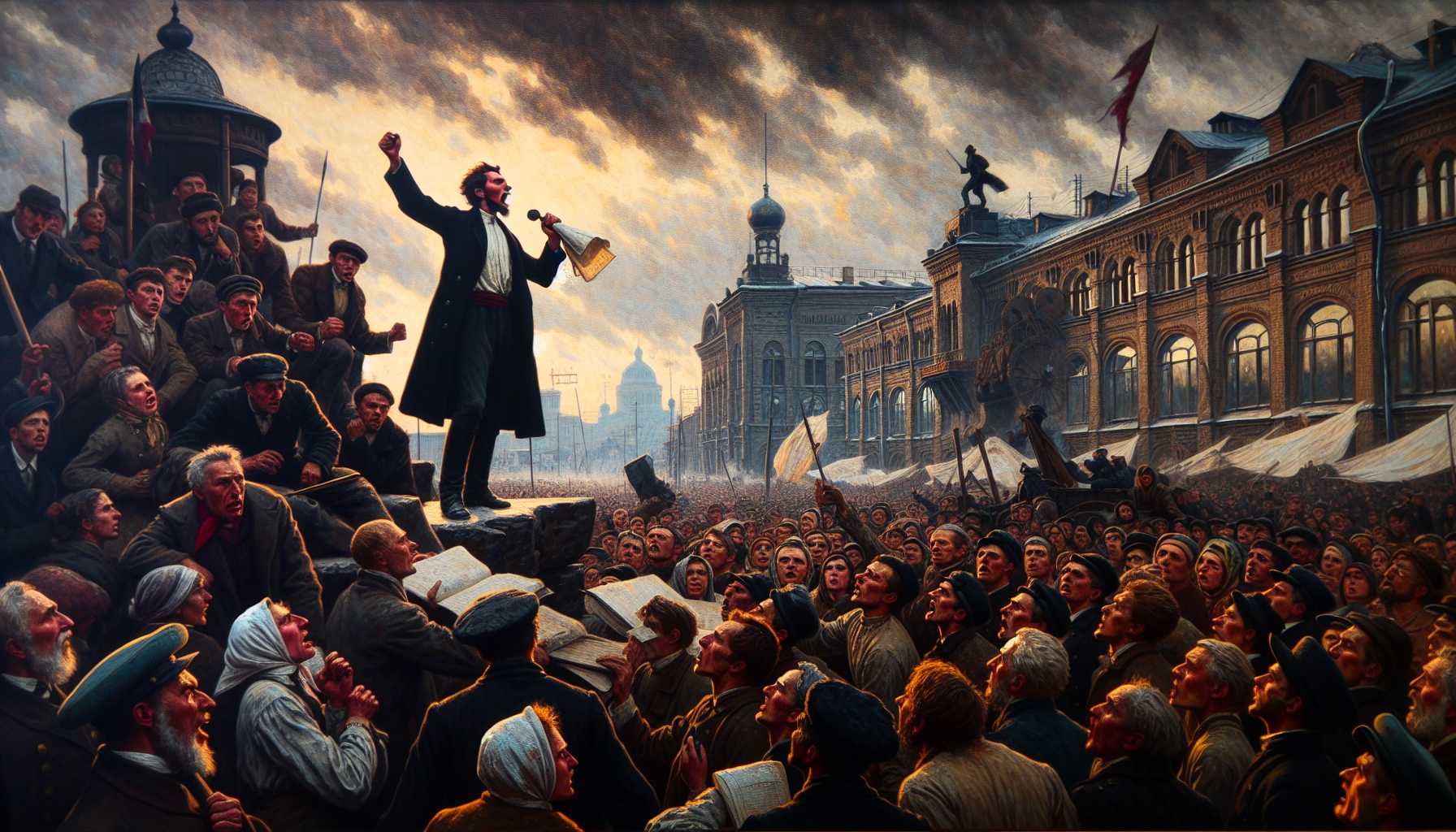
Vladimir Lenin Impact on 20th Century History and Communism
Vladimir Lenin was a pivotal figure in 20th-century history, best known for being the leader of the Bolshevik Party and the architect of the Soviet Union.
Vladimir Lenin was een cruciale figuur in de geschiedenis van de 20e eeuw, vooral bekend als de leider van de Bolsjewistische Partij en de architect van de Sovjetunie.
Born in 1870 in Russia, he became involved in revolutionary politics in the early 1900s, advocating for Marxist principles and the overthrow of the Tsarist autocracy.
Geboren in 1870 in Rusland, raakte hij in de vroege jaren 1900 betrokken bij revolutionaire politiek, pleitend voor marxistische principes en de omverwerping van de tsaristische autocratie.
Lenin's revolutionary fervor led to the 1917 October Revolution, which resulted in the Bolsheviks seizing power and establishing a communist government.
Lenin's revolutionaire fervor leidde tot de Oktoberrevolutie van 1917, die resulteerde in het machtsovername door de Bolsjewieken en de oprichting van een communistische regering.
Lenin implemented significant reforms and policies aimed at restructuring Russian society and economy.
Lenin voerde significante hervormingen en beleid in die gericht waren op het herstructureren van de Russische samenleving en economie.
His leadership during the Russian Civil War (1917-1922) solidified his power but also resulted in widespread violence and hardship.
Zijn leiderschap tijdens de Russische burgeroorlog (1917-1922) verstevigde zijn macht, maar leidde ook tot wijdverspreide geweld en ontberingen.
He introduced the New Economic Policy (NEP) in 1921, allowing limited private enterprise to stimulate the economy after the devastation of the civil war, while still maintaining state control over major industries.
Hij introduceerde in 1921 het Nieuwe Economische Beleid (NEP), dat beperkte particuliere ondernemingen mogelijk maakte om de economie te stimuleren na de verwoesting van de burgeroorlog, terwijl hij nog steeds de staatscontrole over belangrijke industrieën behield.
After his death in 1924, Lenin's legacy continued to influence global politics, with the Soviet Union emerging as a superpower.
Na zijn dood in 1924 bleef Lenin's nalatenschap de wereldpolitiek beïnvloeden, met de Sovjetunie die opkwam als een supermacht.
His theories and practices laid the groundwork for future communist movements around the world, although his approach was often subject to criticism for its authoritarian tendencies.
Zijn theorieën en praktijken legden de basis voor toekomstige communistische bewegingen over de wereld, hoewel zijn aanpak vaak onderwerp van kritiek was vanwege de autoritaire tendensen.
Lenin remains a controversial figure, symbolizing both revolutionary change and the complexities of totalitarian regimes.
Lenin blijft een controversiële figuur, die zowel revolutionaire verandering als de complexiteit van totalitaire regimes symboliseert.
Based on this article
